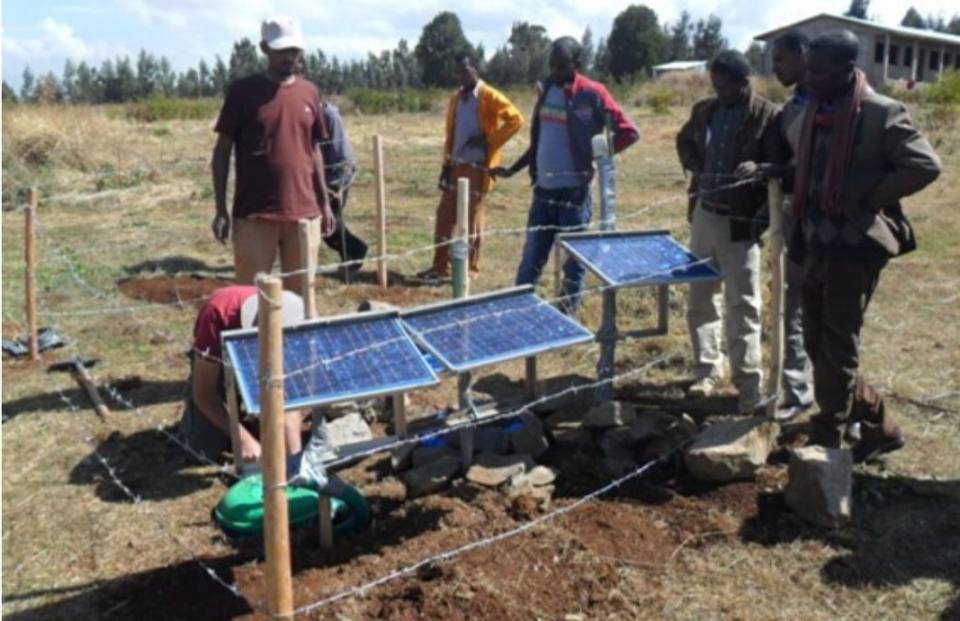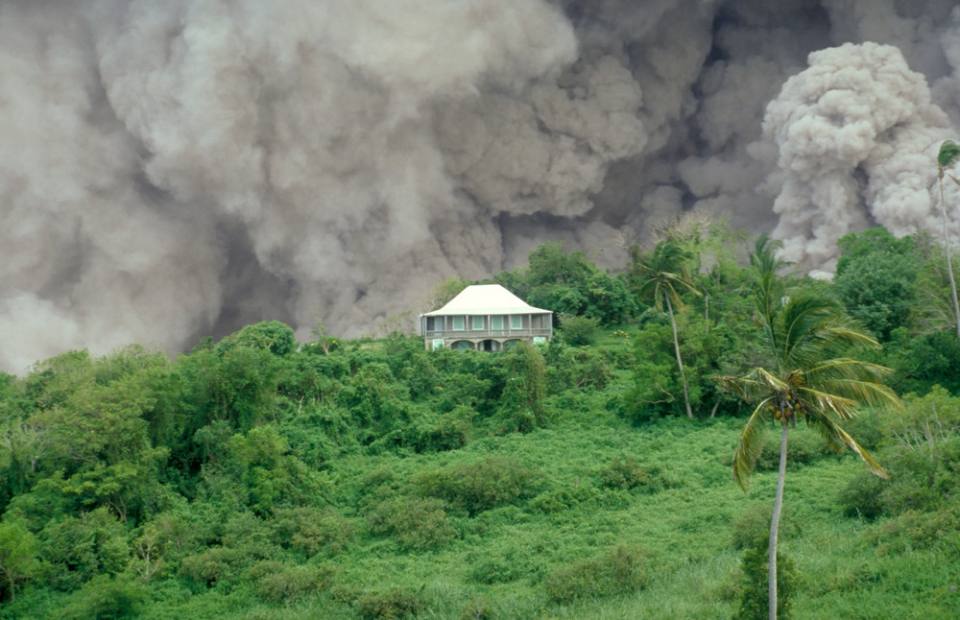Ethiopia is a tectonically active region; the World Bank Disaster Risk Profile suggests that a one-in-ten-year event would affect 90 000 people, with damage to buildings modelled at US$55 million.

BGS and IGSSA staff installing a seismic station at Bekoji in the Rift Valley, Ehtiopia. BGS © UKRI.
An improved understanding of the seismic situation is required before the hazard and risk can be fully characterised. BGS is working with researchers at the Institute for Geoscience, Space Science and Astronomy (IGSSA) at Addis Ababa University to acquire and process data from seismic stations. A system incorporating 3G mobile phone technology and Raspberry Pi computers has been developed to transmit the seismic data in real-time from the Rift Valley to Addis Ababa. We are also considering using the same technology to make some GPS stations real-time.
You may also be interested in

Global geological risk
Our research focuses on characterising complex, multi-hazard processes with the aim of improving resilience of communities to hazards.


